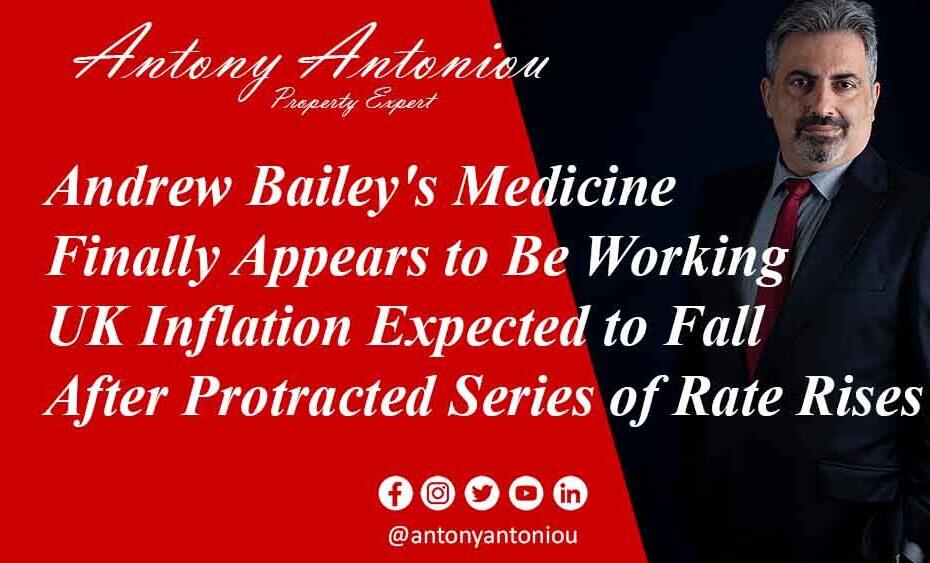Andrew Bailey’s Medicine Finally Appears to Be Working – UK Inflation Expected to Fall After Protracted Series of Rate Rises
**Introduction**
The Bank of England (BoE) has been on an unprecedented journey of monetary tightening over the past two years, but it seems that their efforts are finally paying off. BoE Governor Andrew Bailey recently shared forecasts that indicate inflation could be on a downward trajectory, even as economic growth remains sluggish.
**The Steep Climb: Record Rate Rises**
Since December 2021, the BoE has swiftly raised its benchmark interest rate a staggering 14 times, with the most recent quarter-point increase bringing it to 5.25 per cent. This relentless series of rate hikes, the longest and most aggressive since the 1980s, was a response to soaring inflation levels that were threatening the economy.
**Caution in Optimism: Policy Stance Declared “Restrictive”**
For the first time, the BoE Monetary Policy Committee has explicitly labeled its policy stance as “restrictive,” indicating that the higher borrowing costs are starting to weigh on the economy and tame inflation. It appears that the medicine, in the form of interest rate hikes, is finally starting to work.
**Hope on the Horizon: Forecasts Indicate a Path to Target**
The BoE’s latest forecasts paint a cautiously optimistic picture. If interest rates follow market expectations and reach 6 per cent in the near term before falling again from 2024, inflation is expected to return to the BoE’s target of 2 per cent within two years. Alternatively, keeping interest rates at the current 5.25 per cent for an extended period could yield similar results.
**Multiple Paths Forward: Policy Flexibility**
Governor Bailey emphasized that there are multiple paths that could lead back to the inflation target. The BoE’s Monetary Policy Committee remains open to further rate increases if economic data signals the need for additional measures to combat inflation.
**Positive Signs Amid Uncertainty: Inflation Dips in June**
A positive sign came in June when consumer price inflation fell more than expected, dropping to 7.9 per cent. The BoE is cautiously optimistic that headline inflation will continue to decline in the near term, thanks to easing energy and food prices. However, they remain concerned that rapid wage growth could lead to persistent “sticky” services inflation.
**Challenges and Reflection: Learning from Forecasting Records**
Despite their optimism, the BoE acknowledges that its forecasting track record hasn’t been stellar. Yet, it believes inflation will halve by the end of 2023, signaling a potential turning point for the UK economy.
**Conclusion: A Cautious Step Forward**
Governor Bailey declined to declare victory just yet, being mindful of the potential challenges that lie ahead. However, the forecasted trajectory of falling inflation offers some relief to consumers and businesses grappling with the recent surge in living costs.
As the BoE carefully navigates these uncertain waters, it will remain crucial to keep a close eye on economic data and adapt its policy approach accordingly. The path to economic recovery and price stability may be winding, but there is hope that Andrew Bailey’s medicine is finally bringing relief to the UK’s inflationary woes.

